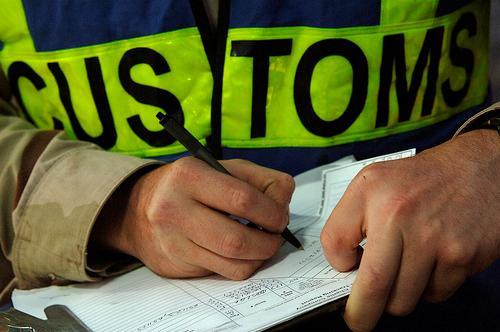
There’s never been a better time to shop overseas. The US dollar has been gaining strength against most foreign currencies, which means you can get more for your money than you could just a year ago. The Wall Street Journal even reports that the US dollar could soon be worth more than the Euro. With VAT discounts and favorable exchange rates, you can now get things from online European shops at prices that are lower than what you’ll find on sale in the US.
This does come with a couple of caveats, however. First, US brands are generally more expensive abroad, so if you’re getting something from Ralph Lauren, Levis, or Alden, it’s better to shop domestically. Second, foreign goods sometimes come with customs and duties, which means any savings you can get from shopping overseas can be washed out.
How can you tell if you’re going to get hit with customs and duties? It’s a complicated matter that rests on many things.
- Courier: If your package is coming to you through national courier services (which here would be the United States Postal Service), you’re probably safe. Same with EMS (which is common when you’re getting something from Japan). If it’s coming to you via UPS, FedEx, or DHL, however, you’re a more likely to get hit. That can either be because of a high customs bill, or the shipping company’s own processing fees.
- Declared Value: Expensive things are more likely to get dinged than cheap items. $36 pocket squares from Singapore will probably slide right through. That $400 Nigel Cabourn sweatshirt, however? Expect to pay a little something extra.
- Special Classes of Items: Import taxes are ways for the goverment to protect domestic business interests. So some things are more likely to get hit than others. Goodyear welted shoes, for example, are a special protected class (you can thank Alden and Allen Edmonds for that), as are things made from cashmere. Bespoke suits from Savile Row, for example, face about a 7.5% tax if they’re made from 100% wool. Add just a bit of cashmere into that mix and – wham! – the duties can jump to 27.3%.
- Exceptions: There are exceptions for used items that you already own, as well items of no commercial value that you’re returning for repair. These items have to be declared as such, but don’t ask the seller to lie on a form. That gets into customs fraud.
- Stuff We Don’t Understand: Then there’s the myriad of complicated trade laws that we don’t understand. Trade between Canada and the US, for example, differs from trade between Italy and the US. Stuff can be kind of murky, and probably not worth your effort to figure out if you’re just buying a jacket.
If you’re really itching to know what you might be hit with, you can use this online duties calculator. Enter the information carefully, however, and use the service sparingly. You only get three calculations before they start charging you.
Good rule of thumb: always expect that you’ll be hit with something. Most of the time, you won’t, but it’s better to be pleasantly surprised that you didn’t get a bill, rather than get upset when you do.